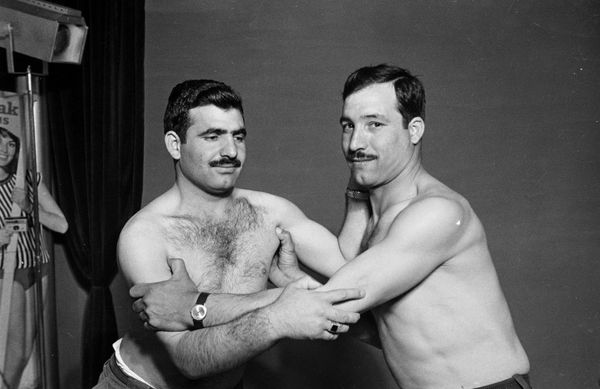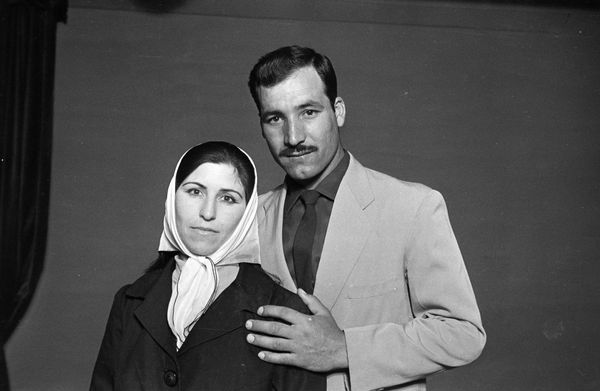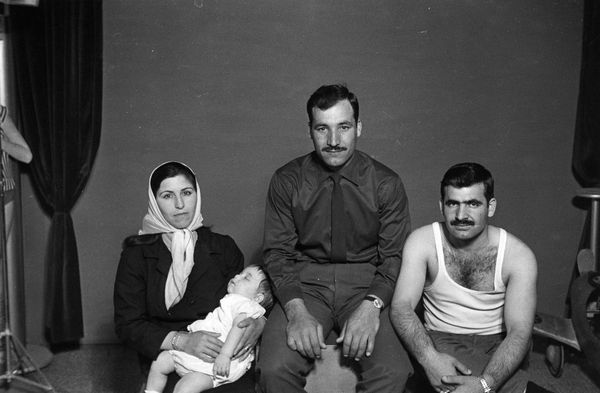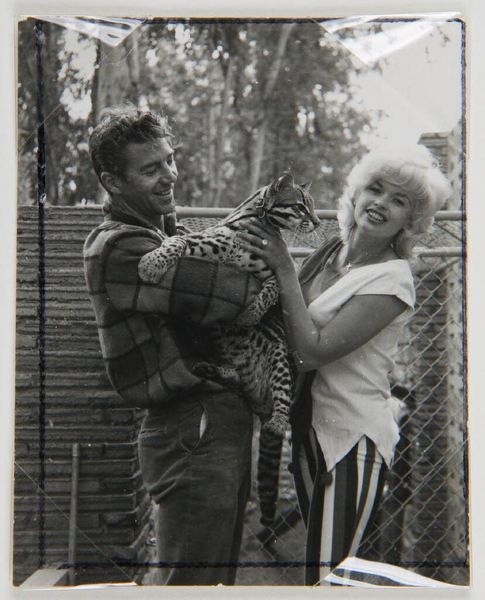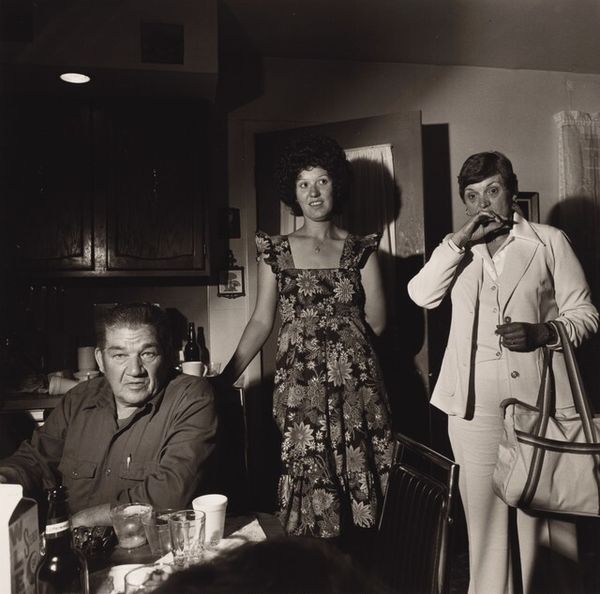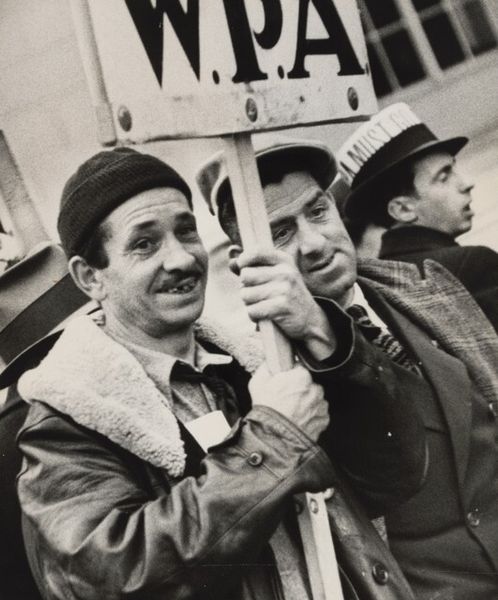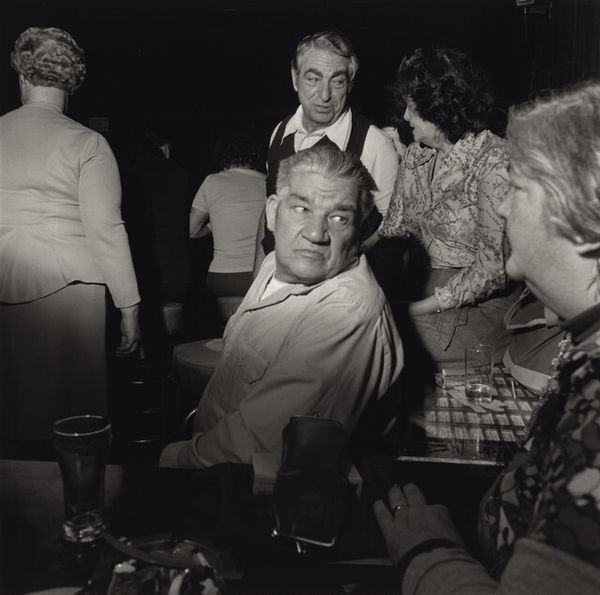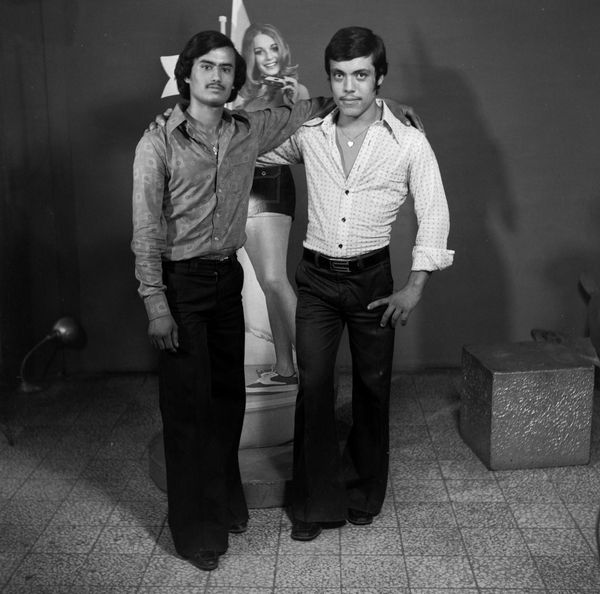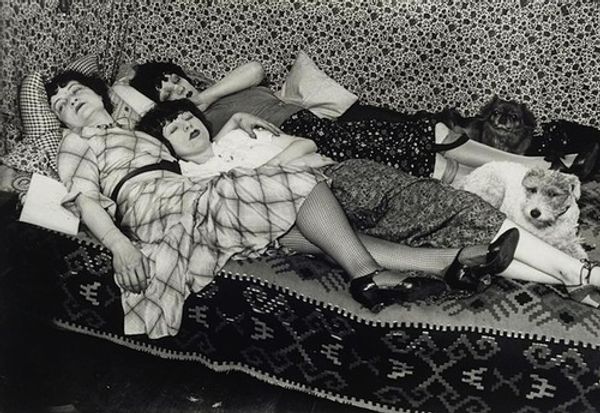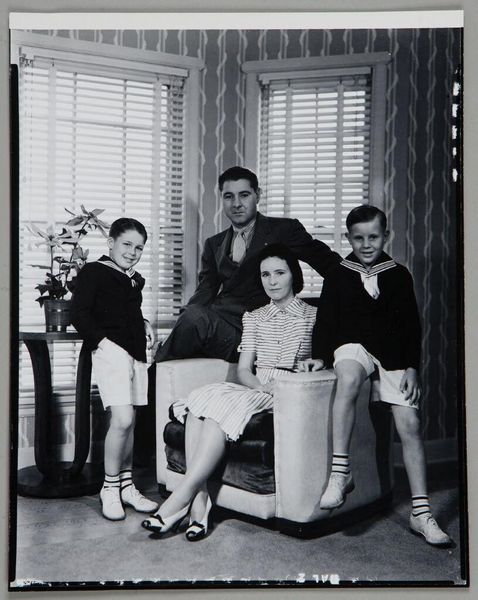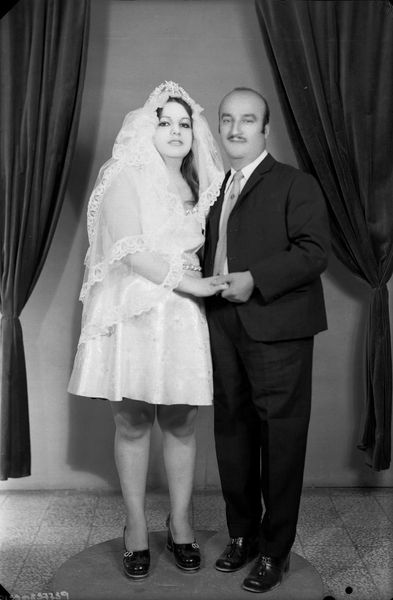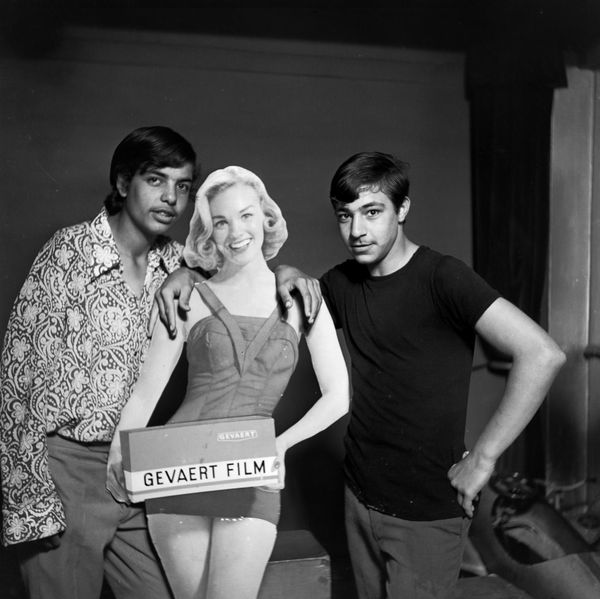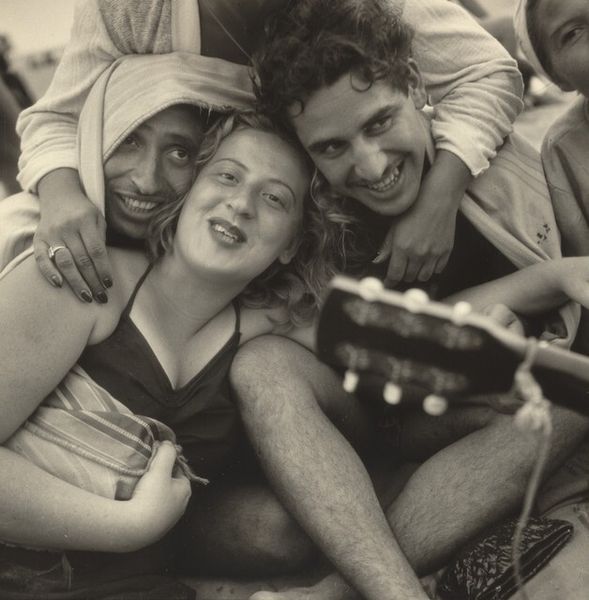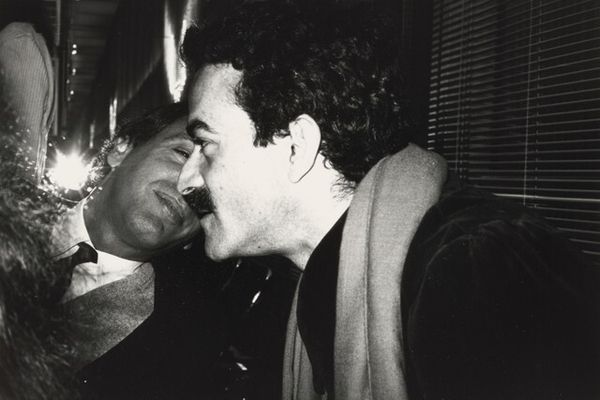
Dimensions: image: 191 x 290 mm
Copyright: © Akram Zaatari, courtesy Hashem el Madani and Arab Image Foundation, Beirut | CC-BY-NC-ND 4.0 DEED, Photo: Tate
Curator: This photograph, taken in the 1970s in Saida, Lebanon, is from the Studio Shehrazade archive, preserved by Akram Zaatari. It shows two men playfully posing with a cutout of a blonde woman. Editor: The grain of the film is so present, giving the image a real grit. And look at the contrast of the men’s clothing – the textures of the tank top versus the button-up shirt. I wonder what that studio space was like. Curator: The artificiality is key—the cardboard woman becomes a symbol of Western ideals, a fantasy. The men's gestures, the flowers, it's a performance of desire, echoing broader cultural longings. Editor: Right, and the labor of the studio photographer to create this fantasy. Consider the processing, the darkroom techniques, the very materiality of creating this aspirational image for working-class clients. Curator: It's about the construction of an identity, then, through borrowed symbols and shared dreams. What does it mean to hold an idealized version of the West so close? Editor: It makes me think about the economics of desire, the accessibility of such fantasies via mass production and the studio’s own production to meet the customer's request. Curator: It’s a potent image; a window into both personal hopes and the collective imagination. Editor: Indeed, a simple photograph reveals layers of social and material complexities.
Comments
tate 10 months ago
⋮
http://www.tate.org.uk/art/artworks/zaatari-anonymous-studio-shehrazade-saida-lebanon-1970s-hashem-el-madani-p79477
Join the conversation
Join millions of artists and users on Artera today and experience the ultimate creative platform.
tate 10 months ago
⋮
This work is one of a series of black and white silver gelatin photographs of varying sizes that are collectively titled Objects of study/The archive of studio Shehrazade/Hashem el Madani/Studio Practices. All of the photographs were taken by the Lebanese commercial photographer Hashem el Madani between 1948 and 1982 and compiled into the present group, 117 of which are in Tate’s collection, by the Lebanese artist Akram Zaatari. All of the photographs include people, either alone, in pairs or in small groups, and most were taken in Madani’s studio, although some were shot outside and in his subjects’ homes. The series features men and women and covers a wide age range from babies to elderly people. Almost all of the sitters assume poses deliberately for the camera, sometimes accompanied by props or costumes, and most gaze directly towards the lens. Many of the pictures show subjects interacting in various ways, including embracing, kissing and acting out scenes, such as a mock wrestling match. The photographs are mostly tightly cropped, with the sitter or sitters filling most of the frame, although in some cases the figures are positioned further away from the camera, for instance when shown sitting at a table or standing behind a chair. The photographs tend to have sparse backgrounds, often dominated by a blank posterior wall. They are mounted on white paper, displayed in plain white frames and signed on the back by Madani. Many of them have been organised into categories by Zaatari – such as a group featuring men dressed as Syrian resistance fighters and a collection depicting newly married couples – while the rest are presented individually. Zaatari has stated that although he prefers these groups to be displayed together, this is not a requirement (Akram Zaatari, email to Rachel Taylor, 24 April 2008, Tate Acquisition file).
